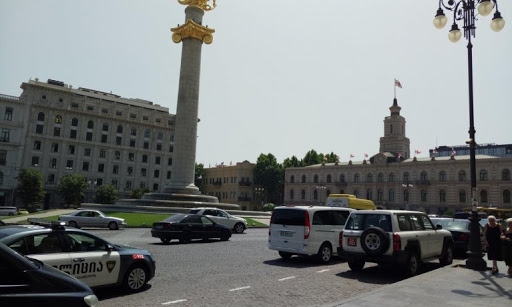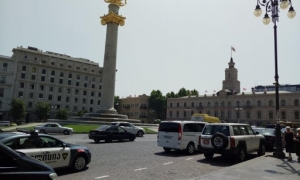Who Is Exempt from the National Ban on Driving Private Vehicles?
On April 17, the Georgian government announced a nationwide ban on driving private vehicles as part of the country's battle against the coronavirus pandemic. The restriction is in force until April 27.
Only persons with special permits are exempt from the rule.
Within hours of the government’s issuance of traffic restrictions, the Patriarchate issued a statement saying the ban would not apply to clergy and church personnel. The government supported the decision.
"Clergymen, choir members and altar servers will be able to drive in order to participate both in today's and all Easter services," read the statement.
The government's spokesman, Irakli Chikovani, held a briefing yesterday to announce the "critically important" facilities with special permission to drive. The Patriarchate was not included on the list.
"Even in the context of a nationwide state of emergency, it is necessary to carry out critically important functions that are inviolable in any country, and to this end we need to issue appropriate permits to certain people”, he said.
Below is the list of exemptions from driving restrictions, including persons involved in:
Food and medical supply services;
Medical services;
Journalistic activities;
International and local freight transportation;
Cleaning and disinfection services;
Private security services;
Transfer and burial of the deceased;
Postal and courier services;
Electricity, water distribution and gas supply;
Telecommunications and waste management;
Technical hazard facilities (elevator, gas pipeline, etc.);
Public service employees whose work is critically necessary.
Persons who urgently need to use private vehicles in cases of emergency are being issued special permits to do so. The cases of absolute necessity include the need to visit a doctor, a patient’s discharge from the clinic, the need to deliver various items to those in the hospital, etc.
By Elene Dzebisashvili












